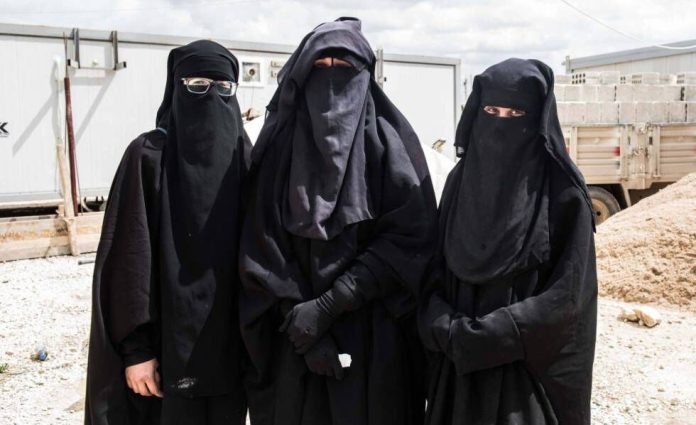European prosecutors are handing down harsher sentences for women who have returned from ISIS, amid an increase in returns due to government repatriation programmes from prisoner-of-war camps in northeast Syria, The National informs.
Female Jihadis Facing Justice, which has handled 283 trials, reports:
“Women can be both victims and perpetrators, including at the same time. Several girls and young women were vulnerable, whereas other women had more agency. Many women were involved only in non-violent activities, but some were also involved in violent activities, either within the household, or by inciting or plotting terrorist attacks.”
France, Germany, the Netherlands and Belgium are facing a sudden influx of female terrorists. These four countries account for more than half of all adults who travelled to Syria and Iraq to join a terrorist organisation after 2012.
At first, female returnees were treated more leniently than men, since women were less likely to have criminal records and engage in criminal activity before joining ISIS.
However, the more lenient approach to charges against women has changed following the surge of ISIS attacks in Europe, especially after the failed plot by women against the Notre Dame Cathedral in Paris in 2016. Women are now more likely to be prosecuted for non-violent offences such as recruitment and propaganda.
Detention centres across Europe have responded differently to the increasing number of women returning from ISIS. The Netherlands “concentrates” female ISIS detainees in specific wards, Belgium and Germany “disperses” them, and France adopts a more hybrid approach depending on the level of violence and zealotry.
The traditional role of women in ISIS makes it difficult for some returnees to understand why they are being prosecuted. Sofia Koller, a senior research analyst at the Counter Extremism Project, quoted one woman as saying:
I only cooked, had babies, was sitting the whole day in a madafa [a women’s guest house] and then married the next one.
However, in general, incidents involving women detainees are uncommon, Tanya Mehra, senior research fellow and programme lead at the International Centre for Counter-Terrorism (ICCT), notes.
In spite of the very low recidivism rates […], some concerns remain.
Although it is assumed that women are less likely to engage in violent crime than men, they are just as likely to promote ISIS ideology among family and friends and online.
